
China Races to Treat COVID-19 Patients as Hospital Beds in Epicenter Near 40,000
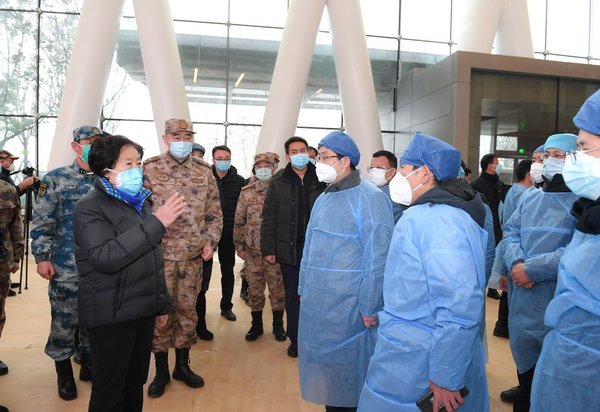
Chinese Vice Premier Sun Chunlan, also a member of the Political Bureau of the Communist Party of China Central Committee, visits the Taikang Tongji Hospital in Wuhan, central China's Hubei Province, Feb. 15, 2020. [Xinhua/Xiao Yijiu]
Currently, more than 30,000 medical personnel, including military medics, have been sent to Wuhan from across the country.
BEIJING, Feb. 19 (Xinhua) — China has gone all out to treat COVID-19 patients both with mild symptoms and in severe conditions alike in the epicenter city of Wuhan as the number of hospital beds reserved for COVID-19 patients has risen to about 40,000 and the supporting medical personnel over 30,000.
Chinese Vice Premier Sun Chunlan, who is leading a central government team guiding the epidemic control on the ground, visited frontline medical workers in Wuhan and made further instructions on treating patients with all-out efforts.
Noting that some effective methods have been tried, Sun said it is necessary to draw experience in a timely manner and form treatment protocols that can be promoted across hospitals.
She also called for concerted efforts from multi-disciplinary medical teams to treat critically ill patients to reduce the mortality rate.
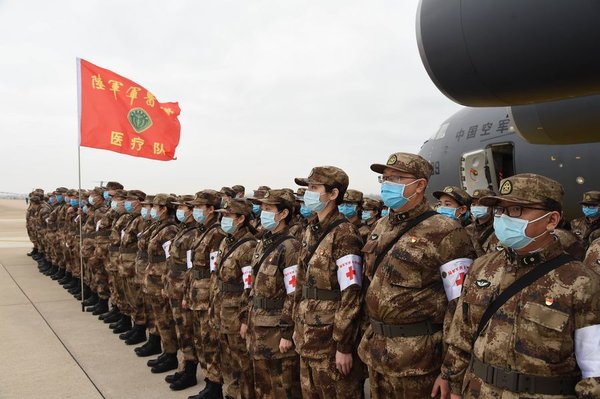
Military medics arrive at Tianhe International Airport in Wuhan, central China's Hubei Province, Feb. 13, 2020. [Xinhua/Li Yun]
Currently, more than 30,000 medical personnel, including military medics, have been sent to Wuhan from across the country with specialties in a number of disciplines, including respiratory infections, heart and kidneys. Wuhan now has 11,000 intensive care medical staff, accounting for 10 percent of the nation's total.
Sun said some positive changes have taken place in the epidemic prevention and control, but the situation remains grim in Wuhan. She urged the medical treatment work to be moved forward to prevent mild symptoms from developing into severe ones, and called for strengthening treatment combining traditional Chinese and Western medicine in temporary hospitals.
The guiding team also called for strengthening the detection of fever patients in Wuhan to block the transmission route of the virus.
The number of designated hospitals in Wuhan, reserved to treat COVID-19 patients, especially those with severe symptoms, has risen to 45, with a capacity of 19,161 beds. In addition, 12 temporary hospitals, which were converted from gyms, convention or exhibition centers, have all been put into use with a combined over 20,000 beds planned for patients with mild symptoms.
(Source: Xinhua)
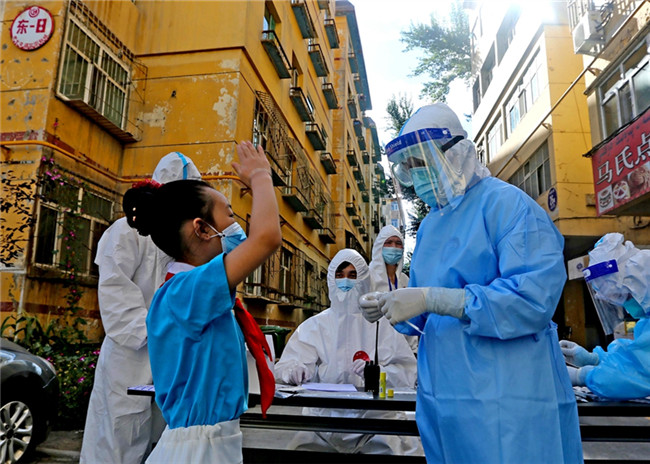 Women Medics in NW China's Xinjiang Contribute to COVID-19 Epidemic Containment
Women Medics in NW China's Xinjiang Contribute to COVID-19 Epidemic Containment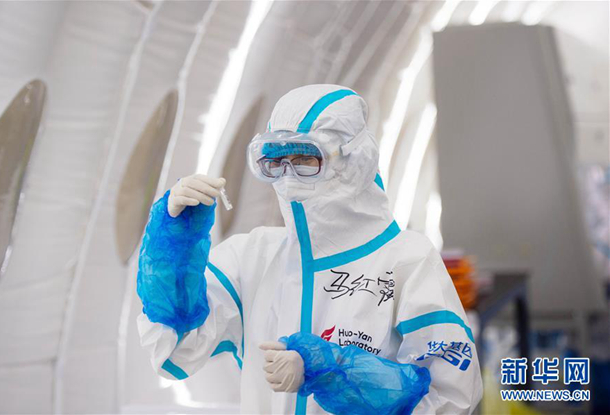 Women CPC Members on Front Line of Anti-COVID-19 Battle in Beijing
Women CPC Members on Front Line of Anti-COVID-19 Battle in Beijing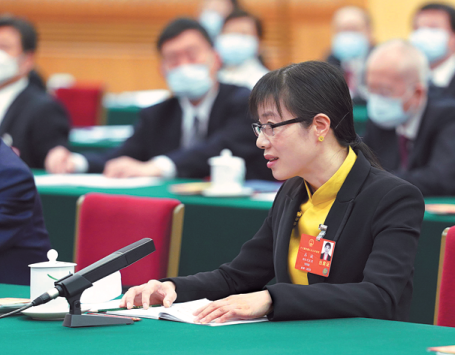 Deputy Recalls Role in COVID-19 Fight
Deputy Recalls Role in COVID-19 Fight- Woman Epidemiological Researchers Race Against the Clock on Front Line
 Pic Story of Nurse Who Aided COVID-19 Fight in Wuhan
Pic Story of Nurse Who Aided COVID-19 Fight in Wuhan Volunteer Provides Milk Tea, Back up Anti-Epidemic Workers in NE China
Volunteer Provides Milk Tea, Back up Anti-Epidemic Workers in NE China

 京公网安备 11010102004314号
京公网安备 11010102004314号